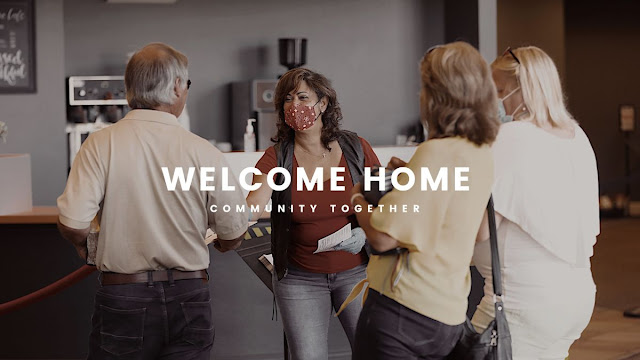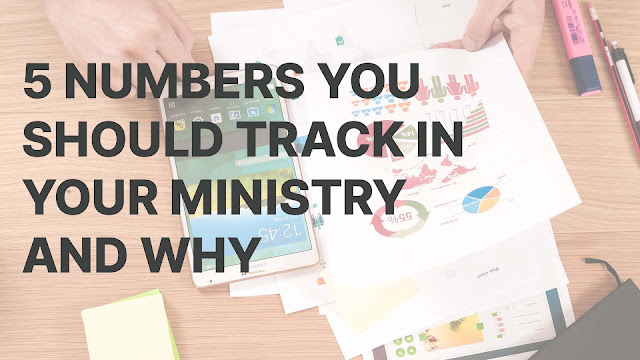How to Create Your Best Event
If you think about it, all of these things are events. Oxford language dictionary defines events as “a planned public or social occasion.” This means just about everything we do in ministry is an event.
Over my years in ministry, I’ve held literally hundreds of not thousands of events. The following are some things I do every time to make sure they are the best events possible.
1. Start planning early
There are some events that don’t take a lot of prep and others can take a better part of a year to put together. There’s a reason why a big, blow-out wedding takes months to plan, and a small affair can be put together in an afternoon.The bottom line is the bigger the event the longer you’ll need to plan.
I once spoke with a new kids pastor who wanted to put on a VBS at his church in a just a few weeks. After a few follow up questions, I realized that he hadn’t planned a thing yet. He hadn’t even picked out his curriculum.
Somehow, he pulled it off, but I can only imagine the stress he was under.
Even if you’re not a planner or thrive under the pressure, you need to start planning early. This is where excellence comes from even if you’re on a shoe string budget. The earlier you start, the more time you have to think creatively, order supplies, build a team to help, market, and create an unforgettable experience.
Many times, I’ll plan my events for the next year in the fall. I’ll sit down with a blank calendar write down the events I want to do next year.
But I don’t stop there. I’ll then work backwards to add in other elements I’ll need to set me up for success.
For example, I know VBS next year will be sometime in June. Working backwards means I need to have some workdays and training meetings in the weeks before, maybe into May. This means I need to start talking about VBS at the beginning of May or even as early as Easter. If I’m going to start advertising on Easter, I’ll need to have all my graphics and marketing materials ready in March or April. But to nail down details of when and where we’re doing VBS and to begin ordering supplies, I need to meet with my VBS lead team in early March or February. If I’m going to know what to pitch to that team, I’ll order my curriculum in January for an event that’s happening 6 months later.
It’s a long process and VBS is usually the most time-consuming, resource heavy event I do all year. I don’t start that early for other events, but I hope you get the idea. Plan early and work backwards.
2. Build a team to help
In my last point, I mentioned a VBS lead team to help me plan. I’ve realized that I’m not good at everything and nor are you. I need to bring people around me that shore up my weaknesses and create a better event all around.So, part of the planning process needs to be figuring out what needs to be done and who is going to do it.
Back to my VBS example, I’ll figure out each of the stations I’m doing this year and write down some names of people I think can do it. I’ll then start to fill in other positions, such as group leaders and captains, supply coordinators, and media team.
As I’m writing down these names, I’m thinking about their strengths and passions and plugging them into the positions for which they’re best suited. I then make a personal contact and invite them on the team.
When recruiting, keep in mind the higher the commitment level you’re asking of your volunteer the more personal your invitation needs to be.
I may take my VBS assistant coordinator out to lunch to ask for their help, but I’ll make an announcement from the stage for a group leader assistant.
When asking people to step up and serve, it’s easy to say no for them. Don’t make up a hundred excuses for why you think they can’t do the job. You’re just talking yourself out of the ask. Bite the bullet, count to three and ask.
One caveat to this is if there is a major family emergency in their life. You don’t want to recruit the new mom or someone who just lost a parent or their job. Give them some space and maybe ask next time. You don’t want to come off as a jerk or insensitive.
Jesus said to pray for workers for the harvest is plentiful, but the workers are few. Ask God to send you the right people and He will.
Use as many avenues as you can afford. When marketing events I’ve used:
A major part of the early planning process is getting together the marketing. I have the graphics made, create the websites, write the taglines, and come up with incentives to spread the word. All of this is done well before I announce to the public. Then after the first announcement, I just work the plan.
I watch what’s working and iterate to best leverage what’s resonating with my market and what’s not. There are so many times when I thought I had a great picture or tagline that was sure to speak to my audience that bombed and the throw away line is what caught. You never know until it gets out into the wild.
Along with the marketing is communication with people who’ve said they’re coming. It’s too easy to focus on new people and forget about the ones you can count on.
If you’ve ever planned a Disney vacation, you know what this looks like. They’ll send you emails and letters counting down the days until you arrive. They’ll give you tips and tell you what to expect when you arrive. They’ll send you magic bands and remind you to sign up for fast-passes.
Do the same for your participants.
I will email my registered participants what to expect, important information before they arrive, times of the event and any pick up and drop off information. It created a much better experience for them, and we had a lot less hiccups.
Keep the event moving, avoid awkward silences and technical problems, have a host to warm up the crowd before you begin. This is really where planning comes in.
3. Market well
I’ve written about how to market VBS before, so I’m not going to redo that here, but you need to have a marketing plan. Just telling your kids or students from the stage is not enough. You need to get the parents involved.Use as many avenues as you can afford. When marketing events I’ve used:
- Postcard
- Social media post
- Flyer
- News radio ad
- Local TV ads
- Texts
- Personal invites
A major part of the early planning process is getting together the marketing. I have the graphics made, create the websites, write the taglines, and come up with incentives to spread the word. All of this is done well before I announce to the public. Then after the first announcement, I just work the plan.
I watch what’s working and iterate to best leverage what’s resonating with my market and what’s not. There are so many times when I thought I had a great picture or tagline that was sure to speak to my audience that bombed and the throw away line is what caught. You never know until it gets out into the wild.
Along with the marketing is communication with people who’ve said they’re coming. It’s too easy to focus on new people and forget about the ones you can count on.
If you’ve ever planned a Disney vacation, you know what this looks like. They’ll send you emails and letters counting down the days until you arrive. They’ll give you tips and tell you what to expect when you arrive. They’ll send you magic bands and remind you to sign up for fast-passes.
Do the same for your participants.
I will email my registered participants what to expect, important information before they arrive, times of the event and any pick up and drop off information. It created a much better experience for them, and we had a lot less hiccups.
4. Make it fun
If your event isn’t fun, they’re not coming back. Even the people that love scary or super sad movies keep coming back because they enjoyed it (crazy people). No matter what your event is there needs to be some kind of fun.Keep the event moving, avoid awkward silences and technical problems, have a host to warm up the crowd before you begin. This is really where planning comes in.
If you haven’t communicated the service plan or worse, not even made it, it’s a recipe for disaster. You’ll have long awkward silences; you’ll have chaos; you’ll have tech issues, guaranteed.
If you want them to have fun, plan for it and give yourself some space for spontaneity. Your people will always come back for more.
5. Evaluate after
A wise man once said an unevaluated failure is doomed to repeat itself.After every event, take some time to evaluate how the event went. The best way I’ve found to do this is to sit down with my team soon after the event, usually within a week after, and do an after action report.
We’ll start with overall review of the good, the bad, and what to improve upon, and then dive deep into the elements of the event.
It’s important to note here that I always start with the good and stay there as long as possible. I don’t want to give myself a perfect 10, but many of the teams I’ve served with want to get down to mistakes, failures, and areas to improve and just skip over the good stuff.
It’ll feel more fun or productive in the short run, but later you’ll feel horrible. If you don’t look at your wins, you’ll leave the evaluation session thinking the event was an overall failure, when it very much may not be.
After we talk about the wins, we then shift to what went wrong, why it happened and what we can do to prevent it next time.
Finally, we look at what we can do to improve next year. Not just the event itself, but the planning and the marketing as well.
I then take all of these notes and put them in my file for next year. This way, when I’m ready to start planning for next time, I don’t have to rack my brain trying to remember what was.
This ensures you continually improve and have the best events year over year. You can read more about my evaluation strategies here.
Ministry is full of events, but we don’t have to be intimidated by them. Plan early, build a team, market, make it fun, and evaluate and you’ll have great events year after year that people will love to come to.
I’ll dive deeper into these ideas later on. I’ll be sure to link to them in this post.
Happy planning!





Comments
Post a Comment